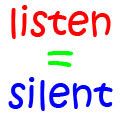"Mom, can you give me some more pocket money?"
"No I can't - money doesn't grow on trees, you know."
Money doesn't grow on trees
This is a common conversation that you hear in any house.
but does money actually grow on trees? No, then why do we use this expression.
Money doesn't grow on trees - It is a phrase which means that you must not spend too much money as there is not much money to spend.
It actually looks like a common expression but when observed has a hidden meaning. Such expressions as called as Phrases. Phrases improve the expressive quality of the sentence/ conversation. The impact on the listener is very strong & hence the understanding of the context spoken. The listener is able to relate to the information and expression the speaker is trying to say.
Most of the phrases are imaginary expressions with greater impact.
Some examples:
"No I can't - money doesn't grow on trees, you know."
Money doesn't grow on trees
This is a common conversation that you hear in any house.
but does money actually grow on trees? No, then why do we use this expression.
Money doesn't grow on trees - It is a phrase which means that you must not spend too much money as there is not much money to spend.
It actually looks like a common expression but when observed has a hidden meaning. Such expressions as called as Phrases. Phrases improve the expressive quality of the sentence/ conversation. The impact on the listener is very strong & hence the understanding of the context spoken. The listener is able to relate to the information and expression the speaker is trying to say.
Most of the phrases are imaginary expressions with greater impact.
Some examples:
- Adbul asked me to buy a car for him on his birthday, i can't afford to. Money doesn't grow on trees for me.
- I have to bare all the expenses of my family, money doesn't grow on trees you know. I need to earn more to keep up.
.jpg)


















